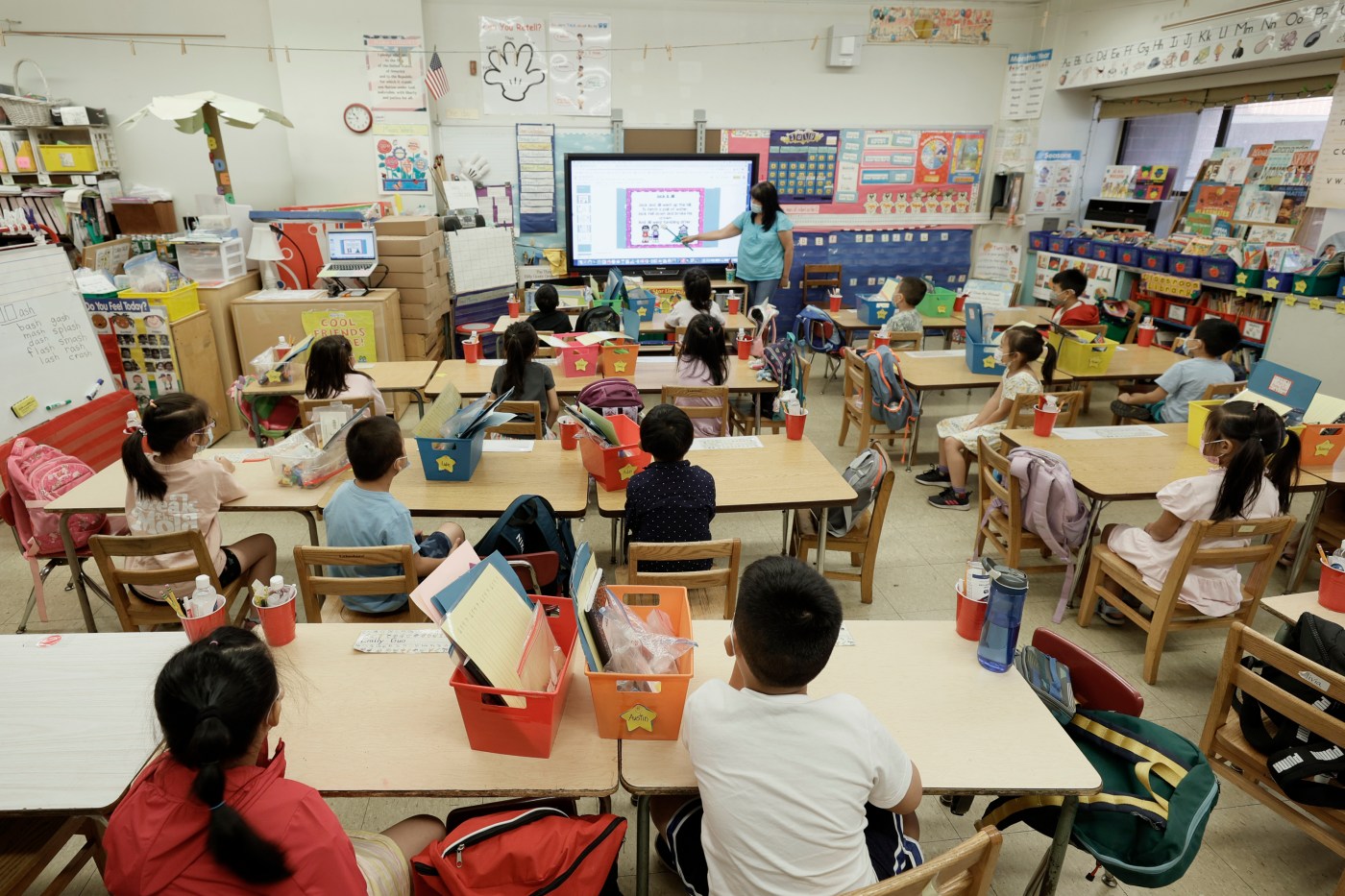Politics
NYC Mayoral Candidates Must Prioritize Education in Campaigns

The 2023 mayoral race in New York City has largely focused on affordability, yet education remains a critical issue that candidates must address. As the first debate of the general election approaches, voters need clarity on how each candidate plans to prepare nearly one million students for a rapidly changing workforce. Education influences not only individual futures but also the overall health of communities and the economy.
Public schools play a pivotal role in shaping the city’s workforce. With the job market evolving due to advancements in technology, especially artificial intelligence, the next mayor’s education policies will significantly impact the city’s economic stability. According to the city’s Office of Management and Budget, New York has experienced the slowest positive job growth during the first seven months of any year since 1995. This trend raises urgent questions about the readiness of graduates entering a challenging job market.
Recent data from the New York Federal Reserve indicates that recent college graduates are facing one of the toughest employment landscapes since 2015, with an unemployment rate of 5.3% compared to the overall rate of 4%. As industries undergo transformation, it is essential for graduates to be equipped with the skills necessary to navigate new opportunities.
New York City’s public schools have recognized the importance of cross-sector partnerships to enhance workforce preparation. Initiatives such as career pathways and work-based learning programs are designed to connect students with high-demand industries. Institutions like Teachers College, Columbia University, are actively involved in this process, providing students with hands-on experience in classrooms throughout the city.
While mayoral candidates have proposed various policies, including early-childhood education, vocational training, and empowering teachers and parents, a coherent vision connecting these initiatives to tangible career pathways is still lacking. Many schools continue to struggle with the repercussions of pandemic-related learning loss and chronic absenteeism. The shortage of counselors, social workers, and educators—with specific expertise in bilingual education and special education—leaves many students without essential support.
Candidates differ in their approaches to educational governance. Andrew Cuomo advocates for maintaining mayoral control of schools, while Curtis Sliwa calls for increased oversight. Zohran Mamdani proposes a decentralization of authority. However, the focus should not solely be on governance models but rather on their effectiveness in delivering improved educational outcomes.
New Yorkers deserve to know how each candidate plans to ensure that resources and reforms make their way into classrooms. A successful governance model must prioritize investment in the teachers and staff who carry out educational initiatives daily. At Teachers College, the aim is to prepare the next generation of educators and professionals to meet the demands of modern education. Yet, their success hinges on the support and resources they receive once in the field.
As educators face the challenge of integrating artificial intelligence into their teaching, addressing mental health needs, and working in multilingual classrooms, the lack of counselors and specialists complicates their efforts. Although candidates have acknowledged the importance of educators, a clear strategy for recruiting, preparing, and retaining them remains absent.
The discussions surrounding education, school governance, and teacher support are interconnected and critical. Education is not merely a policy area; it is the foundation for the public good and a key element in New York’s future success. The decisions made by the next mayor regarding educational policy will determine the city’s economic competitiveness, neighborhood livability, and the preparedness of its children for the future.
As the debate unfolds, voters should demand straightforward answers from candidates: How will classrooms connect to careers? How will schools receive necessary resources? What support will be provided to educators? These questions are vital and reflect the true measure of leadership. Education serves as the bridge between opportunity and progress, essential for shared prosperity. By prioritizing education, New York City can continue to be a place where every child has the opportunity to learn, grow, and thrive.
-

 Science3 weeks ago
Science3 weeks agoALMA Discovers Companion Orbiting Giant Red Star π 1 Gruis
-

 Top Stories2 months ago
Top Stories2 months agoNew ‘Star Trek: Voyager’ Game Demo Released, Players Test Limits
-

 Politics2 months ago
Politics2 months agoSEVENTEEN’s Mingyu Faces Backlash Over Alcohol Incident at Concert
-

 World2 months ago
World2 months agoGlobal Air Forces Ranked by Annual Defense Budgets in 2025
-

 World2 months ago
World2 months agoMass Production of F-35 Fighter Jet Drives Down Costs
-

 World2 months ago
World2 months agoElectrification Challenges Demand Advanced Multiphysics Modeling
-

 Business2 months ago
Business2 months agoGold Investment Surge: Top Mutual Funds and ETF Alternatives
-

 Science2 months ago
Science2 months agoTime Crystals Revolutionize Quantum Computing Potential
-

 Top Stories2 months ago
Top Stories2 months agoDirecTV to Launch AI-Driven Ads with User Likenesses in 2026
-

 Entertainment2 months ago
Entertainment2 months agoFreeport Art Gallery Transforms Waste into Creative Masterpieces
-

 Health2 months ago
Health2 months agoGavin Newsom Critiques Trump’s Health and National Guard Plans
-

 Business2 months ago
Business2 months agoUS Government Denies Coal Lease Bid, Impacting Industry Revival Efforts









